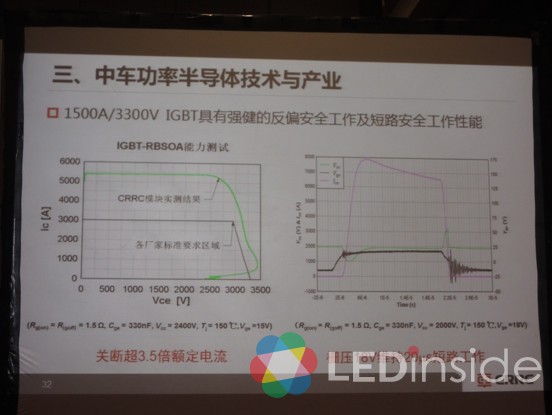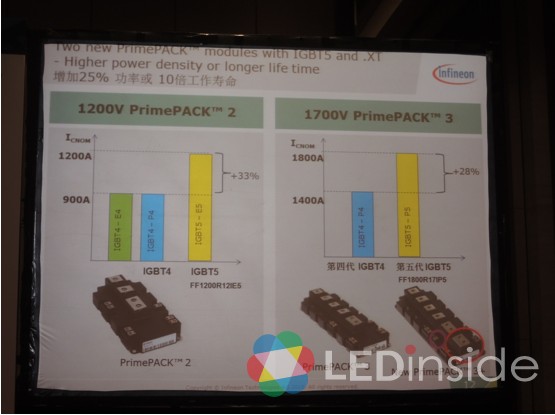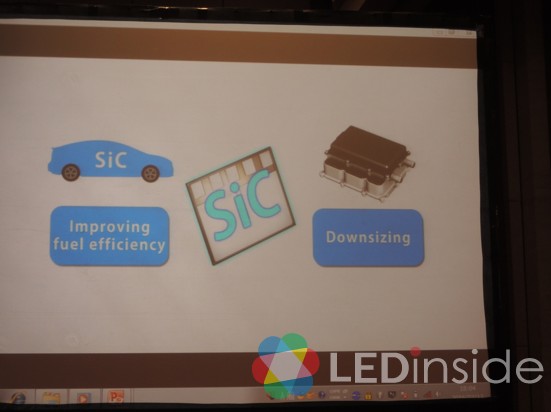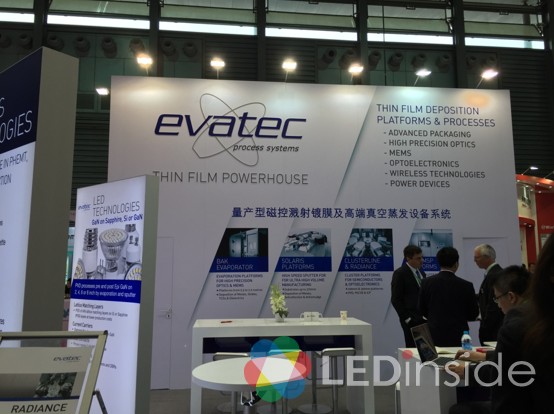(Author: Joanne of LEDinsidehttp:// Translator and Editor: Judy Lin, Chief Editor, LEDinside)
Market sectors encompassing telecommunications, consumer electronics, innovative energy applications in transportation, electricity generation and other market sectors are increasingly valuing power semiconductor devices as usage of these components spreads throughout above listed markets. The dawn of “smart manufacturing in China” has provided new market opportunities in the power semiconductor industry, and spurred market growth. Some of these trends were discussed at “Power Semiconductor Forum” during SEMICON China 2016 organized by SEMI, which took place on March 17 in Shanghai.
The forum covered latest technology trends and applications in various wide band-gap semiconductor markets, including GaN and SiC-based materials and components, Insulated-gate bipolar transistors (IGBT), and telecommunication transmitters. Below are highlights from the forum:
AC driver requirements for railway applications
AC driver semiconductor applications are increasing, said Gary Liu Vice General Manager of Zhuzhou CSR Times Electric. Rail transportation applications have especially demanding AC driver requirements, including high speed, overloading, and operating at full power capacity for long periods. Railways present very harsh operating environment conditions for AC drivers, due to trains frequent starts and stops. There is a positive correlation between the device’s air resistance and speed, so resistance tends to increase significantly when the driver operates faster, and results in greater energy consumption. Hence, the IGBT must have a higher electrical loading.
Under overload conditions, the IGBT’s mechanical traction power output is close to its limit, and poses a huge challenge on IGBT’s power output capacity. The IGBT’s robustness and thermal dissipation capacity is put to the test when operating at optimal power output over long periods, this forces the transistor to operate under high temperatures for long hours, which affects the device’s electrical stress and thermal stress. Metros and railways frequent starts and stops indicates the IGBT is working in a thermal cycle that switches between warm and high temperatures, this requires high power cycling capability. In railway applications, it commonly requires the IGBT to have a power cycling capability of several million cycles. The listed harsh operating conditions and the correlation between high power output and high temperature, demands the IGBT to be highly impact resilient and thermal resilient. Most AC driver systems that use IGBT have a currency ranging from 1,700V to 6,500V.
Hence, Zhuzhou CSR Times Electric’s IGBT product range encompasses 1500 A/3300 V, 750A/ 6,500V, and have safety features including Reverse-biased Safe Operating Area (RBSOA) and short circuit protection. DC to AC inverters rely on IGBT to control the power device, and IGBT has become mainstream in high speed rail power traction systems. The technology will aid China’s high speed rail developments.
 |
|
Zhuzhou CSR Times Electric’s IGBT product range encompasses 1500 A/3300 V, 750A/ 6,500V, and have safety features including Reverse-biased Safe Operating Area (RBSOA) and short circuit protection. (All photos courtesy of LEDinside) |
Infineon Technologies high power solutions
Infineon Technologies (Infineon) plans to raise its power devices maximum junction temperature to 175 degrees Celsius. A higher junction temperature could extend the product lifetime, since mismatch between mechanical stress and Coefficient of Thermal Expansion (CTE) determines the product lifetime.
The company’s .XT technology uses copper bond wires to increase output power by 25% and extend the lifetime of IGBT modules by a factor of 10. Hence, by applying the technology in the product, the IGBT module could be applied in buses and electrical vehicles. IGBT 5 can raise the power output to 1700V and 1800 A.
 |
|
Infineon 1200V and 1500V Primepack product series. |
The second technology that the company has in its product lineup is 6.5kV Reverse Conducting IGBT with Diode Control (RCDC), which combines IGBT and diode function in one chip. The integration enables it to be applied in high speed rail market, and drive power output to 1000 A. RCDC module’s thermal dissipation advantage is its ability to reduce virtual junction temperature (Tvj) ripple, by coupling dense thermal ripples with low thermal ripples in the module, thus increasing current density by 33% and improving thermal dissipation capacity. The lower Tvj can strengthen the train engine’s start up capacity, while strengthening the train’s break system and ability to regulate impact from malfunctioning electric network.
Thirdly, Infineon highlighted its XHP modules, which can minimize module packaging, and lower stray inductance by one sixth during packaging. The presence of stray inductance can cause overvoltage spikes in the current system, the design is a half-bridge switch design which effectively improves the system performance, and can be used flexibly.
 |
|
Toyoda Gosei is using SiC-based power devices to downsize the power device size. |
Toyoda Gosei’s semiconductor power device series for green cars
Toyoda Gosei has been promoting environmental friendly cars including electric vehicles and fuel cell electric car (FCEV). Toyota’s new FCV model, MIRAI, is capable of supplying electricity, and uses in-house manufactured SiC-based semiconductor power devices. It can endure high switching frequency, deliver maximum power output of 650V, and increased motor voltage has also reduced fuel cell usage volume. This has greatly reduced the size and weight of the vehicle, and improved fuel cell efficiency.
Evatec III-V compound semiconductor equipment developments
Power devices and wireless radio frequency markets have the greatest demands for III-V compound semiconductor equipment, in response Evatec released sputter and evaporaters. The Swiss manufacturer acquired Oerlikon semiconductor business in late 2014, and released sputter and evaporaters for power semiconductor, wireless broadband, and advanced RF technology. Evatech’s strength in manufacturing expertise, has given it the largest global market share in the equipment market. Equipment manufacturing emphasizes control system’s precision and reliability, and the company has also developed 4-inch, 6-inch and 8-inch equipment platforms for manufacturers.
Advantages in equipment manufacturing include steady manufacturing capacity and lowest total costs, an equipment that makes 150 mm (6-inch substrates) and uses 160 mm carrier tray, could significantly raise flexibility for clients during usage and applications. The manufacturing process involves TaN-TFR and metal lift-off, and eliminates the need for two different equipment. Moreover, it reduces manufacturing time and size of the machine. Additional, features include its capacity to adjust Target to Substrate (T-S) distance, and can operate both Direct Current (DC) spurring and Radio Frequency (RF) spurring, which makes manufacturing much more convenient.
Mainly, the TaN layers uniformity in Evatec products is around ±2 %. Other performance parameters include TCR <100ppm/K, stress < ±200 MPa, production capacity 40-60 wph, and the ability to keep substrate temperature lower than 90 degrees Celsius, due to its unique active coating process and cooling solution.
Currently most of Evatec’s clients are major European and American manufacturers. The company will be scaling up its market revenue in China, due to positive prospects of the country’s power device and wireless RF device equipment market demands.
 |
|
Evatec's booth at SEMICON China 2016. |















